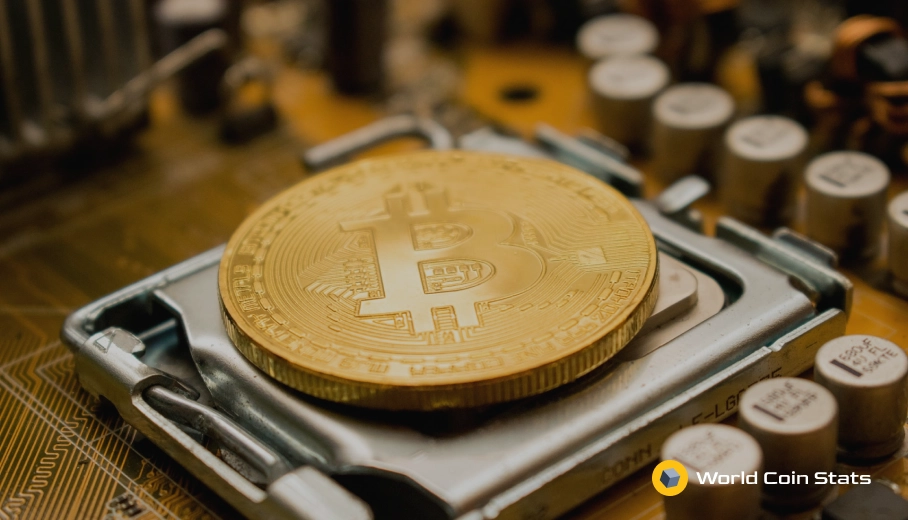Decentralized Funds Will Outperform VCs
Decentralized finance (DeFi) has been on a tear recently with returns in the thousands of percent per year. This has led to some comparison between DeFi funds and venture capital funds.
We would consider this a fair comparison because the general business model is very similar to investing money into a wide range of companies with the hope that one of them will become successful and pay for the losers. With that in mind, this article will propose that decentralized funds will outperform venture capital funds in the future. This follows the overall trend of decentralized finance slowly chipping away at centralized financial institutions and traditional finance investment tools in the future.
Anyway, this article will cover the implications of this and why decentralized funds will not only outperform venture capital funds, but also make venture capital funds irrelevant.
Average Return of Venture Capital Funds vs Decentralized Funds
The average return of venture capital funds is hard to actually pin down. However, estimates range from about 19% to 27% return per year on a venture capital fund.
Obviously, this is an average that does not represent the full picture. Remember, some venture capital funds have amazing returns if their investments hit a series of IPOs or acquisitions.
Those IPOs and acquisitions are not the norm, though. 22% is a good number for the average return of the average venture capital fund.
Now, decentralized funds are even more difficult to track a percent return on for a few reasons. The biggest reason is that, well, these funds are extremely new. For instance, Sheesha Finance – a DeFi mutual fund – raised $9.44 million during their launch a few weeks ago.
Sheesha Finance is the first DeFi mutual fund, which means that the APY of it can’t even be determined at this moment.
Despite this seeming lack of data, anyone that has followed DeFi for the past year will know that it does not take too much work or knowledge to beat 22% per year. In fact, simply providing liquidity to decentralized exchanges like SushiSwap or Uniswap can earn you over 20%. This number increases as the risk of the coin one provides liquidity for increases.
To summarize, decentralized funds do not offer enough data to make a fair comparison against a venture capital fund. But the track record of DeFi investments makes it clear that an investment strategy that invests in a wide range of different DeFi investment vehicles is a pretty safe investment.
Advantages and Disadvantages of Decentralized Funds
Decentralized funds have some major advantages over venture capital funds. Of course, they do have some slight disadvantages over venture capital funds. Despite the disadvantages, we believe that decentralized funds will attract investors and outperform venture capital funds.
Advantages of DeFi Funds
As mentioned previously, this section will cover the advantages of DeFi funds. This list is not comprehensive, but it offers a good overview of some of the main advantages these funds offer to investors.
Open Investment
The first major advantage of a DeFi fund is that investment is open to anyone. This sets it apart from US based VC funds because those always require one to be an accredited investor to invest.
For those that don’t know, an accredited investor is an individual that meets certain requirements as deemed by the Internal Revenue Service (IRS). As of 2021, those requirements are a net worth over $1 million that excludes the value of your primary residence or an annual income of $200,000 per year for the past two years.
That one requirement alone knocks out about 97% of Americans from ever investing in a venture capital fund. The one caveat is that the net worth of accredited investors is obviously higher than most Americans, so this does not really impact the amount of capital that flows into VC funds as much as you would think at first glance.
We still consider the openness of DeFi funds a major advantage over VC funds, though.
Easier Investment
Next, DeFi is much easier to invest in than a VC fund. Investing in a VC fund is not as easy as it sounds. You must submit tax information and typically listen through a pitch by the VCs on why you should invest in their fund. Furthermore, you must file your taxes on all profit or losses from the VC fund.
That’s complicated.
DeFi funds, on the other hand, involve buying Ethereum or a stablecoin and sending it to the DeFi fund’s smart contract. You then receive your return to the designated wallet.
It’s relatively easy for those with any technical experience, anonymous, automated, and transparent as it can be audited by looking at the blockchain.
All of that is a huge advantage over VC funds.
Lower Fees
VC funds also charge fees. We will say that these fees are not the highest fees in the world at an average of about 2% per year.
DeFi funds, however, have fees much lower than that. It would be surprising to see a DeFi fund with a fee over 1%.
On The Cutting Edge of Technology
Finally, DeFi is on the cutting edge of technology. It’s an extremely new technology, which you are investing in by investing in a DeFi fund.
In that sense, DeFi is exactly the type of business model that a VC would invest in – cutting edge, no mainstream adoption, and solving a huge problem.
Again, a huge advantage of decentralized funds.
Disadvantages of DeFi Funds
DeFi funds are not without their disadvantages. This section will cover those disadvantages in detail.
(Typically) Limited to Investment in DeFi Protocols
The first problem with DeFi funds is that they are limited to investment in DeFi protocols. So far, this does not appear it will be an issue as DeFi has seen hockey stick growth.
The problem with this is that if (when) DeFi experiences a general downturn, then the performance of the fund will suffer. This was experienced by tech VCs during the Dot Com bubble.
That said, it’s not the biggest problem in the world – most VCs have a focus on one type of industry. It is something that you should be aware of, though.
Requires Holding Cryptocurrency
The other issue with investing in DeFi funds is that they require investment in cryptocurrency and pay returns in cryptocurrency. There are ways around this by using stablecoins like Dai or Tether, but the stability of those coins is not always assured.
It gets even riskier when returns are paid out in a volatile cryptocurrency like Ethereum. At the moment, this is not a concern as cryptocurrency has seen hockey stick growth over the past 9 months, but it is something to take note of because a market downturn will eventually occur.
The Big Picture of Decentralized Funds and DeFi
So, we have covered why decentralized funds, and DeFi in general, will outperform VC funds. DeFi funds are easier to use, offer higher returns, are open to anyone, and operate in a very new technological space.
This is still a small picture, though. The small picture is good making money in the short term, but the long term future is that DeFi will completely destroy all aspects of traditional finance. Venture capital funds will simply be one of many casualties that DeFi will cause.
As mentioned previously, this process will not be instant, but it will occur eventually. Betting against technology is always unwise.
Final Thoughts
Well, that wraps it up for why decentralized funds will outperform VCs. The timeline of when this flip will occur remains to be seen, but it appears that it will come much faster than most people think.
DeFi is here to stay – and decentralized funds will be a tool used for investment in those funds.




